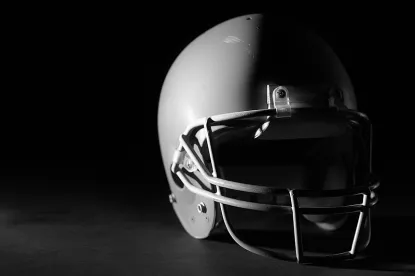The First District of the Illinois Appellate Court, in Chicago Bears Football Club v. Cook County Department of Revenue, 2014 IL App (1st) 122892 (Aug. 6, 2014), affirmed an administrative determination finding that the Chicago Bears owe Cook County more than $4.1 million in amusement tax and related interest, on the basis that the amenities and privileges enjoyed by Bears premium ticket holders are taxable admission charges. The ordinance at issue imposes tax on “admission fees or other charges paid for the privilege to enter, to witness or to view such amusement” but excludes “any separately stated charges for non-amusement services or for sales of tangible personal property.” Cook County, Ill. Code of Ordinances, part I, ch. 74, art. X, § 74-392(a), (e).
The charges at issue include those for club-level seats, luxury suites and the Skyline Suite. For club-level seats, the assigned seat location varies from the 50-yard line to the end zone. On the face of the ticket, the charge for the seat and for the amenity license is separately stated. The price of the seat is constant regardless of location, while the price of the license varies depending on the seat location. Amenities provided to a club seat ticket holder include access to a “club lounge” for use before, during and after the game. The lounge has buffet and bar areas (food and beverage not included in ticket price), better food selection than that available in the regular seating area, and high-definition televisions for viewing the Bears game in progress and other National Football League games. A club-level ticket holder cannot view the entire field from the lounge. Other amenities include rights to early ticket purchases for playoff games and non-Bears-game events at Soldier Field, special parking privileges, invitations to autograph sessions and merchandise giveaways, free game day programs and invitations to appreciation events year-round.
The luxury suites provide a private enclosed area for up to 20 guests. Seating is not assigned. Tickets list a single price. Suite amenities include individual temperature controls, private bathrooms and high-definition televisions. Food and beverage generally are not included in the ticket price. Other available amenities include first option to use the suite for most non-Bears events at Soldier Field, travel arranged by the Bears for certain away games, invitations to non-football game day events, participation in game day drawings for special prizes, parking passes, special recognition in Bears publications and invitations to appreciation events year-round.
The Skyline Suite is an open area shared by multiple licensees and has non-assigned seating. Food and beverage are included in the price. Like luxury suite tickets, Skyline Suite tickets list a single price. The same amenities available to luxury suite ticket holders are available to Skyline Suite ticket holders.
The appellate court affirmed the county’s assessment, concluding tax is owed on 100 percent of the club seat ticket price and on 60 percent of the luxury suite and Skyline Suite licenses. For club-level seats, the court reasoned that a person who wants to watch a game from a club seat cannot get to a seat without paying the privilege license fee, relying on its decision in Stasko v. City of Chicago, 2013 IL App (1st) 120265 (Sept. 30, 2013). In Stasko, the court found taxable under the City of Chicago amusement tax (substantively similar to the county tax) permanent seat license fees that had to be paid before purchase of a season ticket for a specific seat location.
The court’s analysis with respect to club-level seats is erroneous. First, the Stasko decision does not apply, because the only benefit provided to a purchaser of a permanent seat license is the seat location. In contrast, the purchaser of a club seat ticket gets the seat location plus the amenities. If a person did not want the amenities, he or she would buy a regular seat ticket. Second, the Bears met the “separately stated” requirement for non-amusement services. As the dissenting opinion observed, even the county’s auditor recognized that the Bears separately stated the price of the admission and the price of the amenities. See 2014 IL App (1st) 122892, ¶¶ 48-49. Third, the amenities enjoyed by club seat ticket holders are significant, and some are available even during the off season. The fact that live play cannot be seen from the “club lounge” highlights the difference between the amenity privileges and the simple right to view the game. Tactically speaking, the Bears could have improved their position by increasing the separately stated ticket price, rather than the license fee, based on quality of seat location. But the court ignored this fact.
The court’s analysis of luxury suites and the Skyline Suite withstands scrutiny. The Bears did not come within the terms of the ordinance because they did not separately state the value of the seat from the value of the amenities. The Bears introduced internal books and records showing the value of a seat, but the court found no basis to exclude any part of the luxury suite charge because the ordinance does not refer to internal records as evidence of the value of a seat. Additionally, the county’s auditing mistake allowed the Bears to reduce the tax base of luxury suites by 40 percent because the county believed that all luxury suites included food and beverage (not subject to amusement tax) when that was the case with the Skyline Suite only. The county did not contest this mistake. Even for the Skyline Suite license, a 40 percent discount is arbitrary, as argued by the dissent. The auditor provided no explanation for this determination, suggesting, as the Bears pointed out, that the amount of the discount is based on a City of Chicago ordinance that bases the Chicago tax on 60 percent of the value of a skybox. The Bears’ appeal of the luxury suites and the Skyline Suite ruling is strategically suspect because a remand would have resulted in tax being owed on the full price of the luxury suites.
The county’s administration of the tax is deplorable. Given the amounts at stake, the ordinance should have been drafted with the club seat/luxury suite issue in mind. That is how the City of Chicago drafted its ordinance. Instead, the Bears were left to guess at how the county would impose the tax. The auditor’s suggestion that the club seat license could have been excluded had the Bears sought an agreement with the county—when the ordinance says nothing about requiring a taxpayer and the county to negotiate the tax base—shows that the administration was irrational. The appellate court compounded the problem by effectively reading the exclusion for non-amusement services out of the tax for the club seats. The Bears could not come within the separately stated requirement for the luxury suites and the Skyline suite without trying to state a separate price for the value of the seats and the food and beverage. Such a separate statement could be a practical or business impossibility. As the dissent found, the county made no effort to clarify how it would impose the tax. The issue is entirely straightforward. The county’s position, leading to years of litigation, is unconscionable. As with the recent debacle over its illegal Use Tax (Reed Smith LLP v. Ali, 2014 IL App (1st) 132646-U (Aug. 4, 2014)), Cook County’s capricious use of its tax power tarnishes the Chicago area’s attractiveness to business.




 />i
/>i

